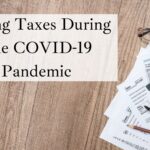When it comes to student loans, the first thing you should understand is that there is more than one type of loan. When you are getting a loan to go to school, you will either get a federal loan or a private loan. Federal loans come from the government, and private student loans are provided by businesses or banks. When you are paying back those loans and you find yourself unable to make your required payments, there is something called a statute of limitations that you should understand.
The statute of limitations is a legal term that refers to a specific time period. It means that someone, like a lender, has a limited amount of time to take legal action against an unpaid debt. In the case of private student loans, this means that your lender can only sue you for unpaid debt for a certain amount of time.
If you stop paying your student loans today, it is possible that your lender could sue you. However, they can’t wait an unlimited amount of time and then turn around in 20 years and sue you.
If you’re in a situation where your private student loans have defaulted, here are the answers to a few of the most important questions you’re probably asking.
How Long is the Statute of Limitations on Private Student Loans?
The statute of limitations varies in each state. Your state has a specific amount of time for the statute of limitations, and also differs if the contract was written or oral. Although oral contracts have a significantly shorter statute of limitations, it’s very rare for a lender to give you private student loans without a written contract.
In the majority of states, the statute of limitations on private student loans with written contracts is five or six years. There are seven states where the statute of limitations lasts only three years, and twelve states where the period is extended to eight or ten years.
When Does the Statute of Limitations Start?
You don’t need any kind of document or statement that declares the statute of limitations or makes it official. It begins as soon as the contract is broken. In the case of private student loans, this means as soon as you stop paying your scheduled payments.
But when you miss even one student loan payment, your debt actually increases even more. Your loan payment is made up of principal and interest. Principal is what you are paying on your actual debt, and interest is the extra fees you’re paying to have the private lender loan you money. When you stop paying, you can actually accrue interest fees on your interest.
Free Private Student Loan Relief Helpline
It’s very easy to get swept away by the confusing financial terms and fear when you aren’t able to pay. The best thing you can do is call the Private Student Loan Relief Helpline. This will give you free access to experts who can give you the best options for handling your debt.
What Can Happen During the Statute of Limitations?
During the statute of limitations, your lender will probably not just sit around and hope that you eventually pay them back. They will notice the missed payment quickly and will make every effort to contact you, whether that’s by mail, e-mail or phone.
Your original lender can sue you, but they may sell your loan to a debt collector. Collection agencies typically have much more aggressive methods to collect the money owed. Keep in mind that when you have any kind of debt that goes to a collection agency, it immediately has a negative impact on your credit score.
What Should You Do After the Statute of Limitations Passes?
After the statute of limitations passes, collection agencies can’t sue you. However, your student loan problems won’t magically disappear. The collection agencies can continue to call you and ask you to pay the debt voluntarily.
Even if and when the statute of limitations has passed, your credit score will reflect it. Being in default on loans for a minimum of three years will cause a massive decrease in your credit score, and that will stay on your credit report for seven years. During this time, you will have difficulty purchasing vehicles and getting a mortgage with a low credit score. After seven years, the default will fall off your credit report and you can build your credit score back up.
Is It Possible to Restart the Statute of Limitations on Private Student Loans?
The statute of limitations is instantly restarted if you pay anything on your debt. You will also reset the clock if you acknowledge that the debt is yours, arrange for a payment plan, make a charge on your account, or accept a settlement offer.
That said, the best way to avoid financial consequences is to consistently make the appropriate debt payments. If that is not an option, paying small amounts sporadically may not be as useful as you think. Make sure you call the Helpline for Private Student Loan Relief to ask questions about handling your private student loan debt when you face financial hardship. The number to call is (888) 669-1064.
How to Decide What to Do Within the Statute of Limitations
If you are unable to make payments to a private student loan lender, you may find out that their requirements are rigid. Private student loans do not have the same kind of payment flexibility as federal loans.
However, there is always hope. There are many options to pay off your student loan debt, but you need the help of a professional. Don’t hesitate to call the Private Student Loan Relief Helpline. It’s a free resource that’s meant to provide you with the information and tools you need to avoid dire financial consequences. The experts who service the helpline, deal with private student loan problems every day. They’ve probably worked with your lender many times. Call and learn your options for relief today.
Get on the path to finding financial relief today!









